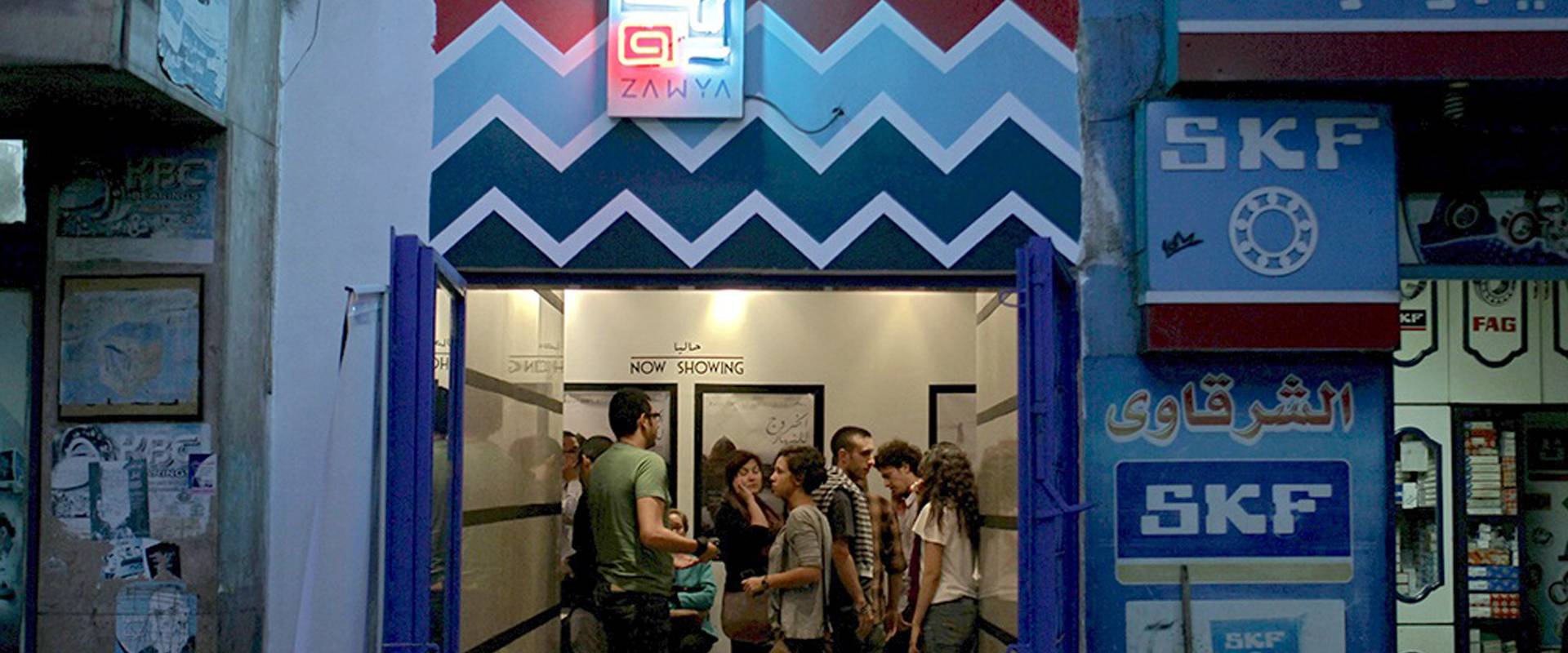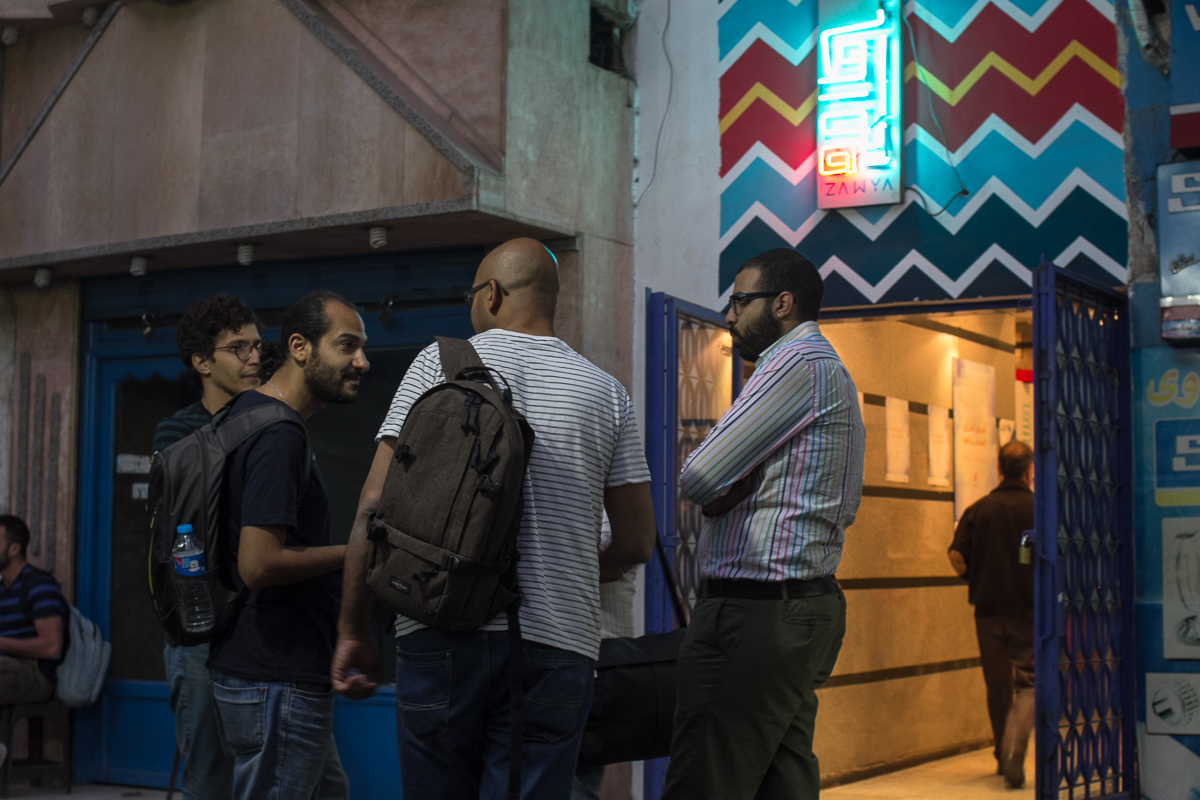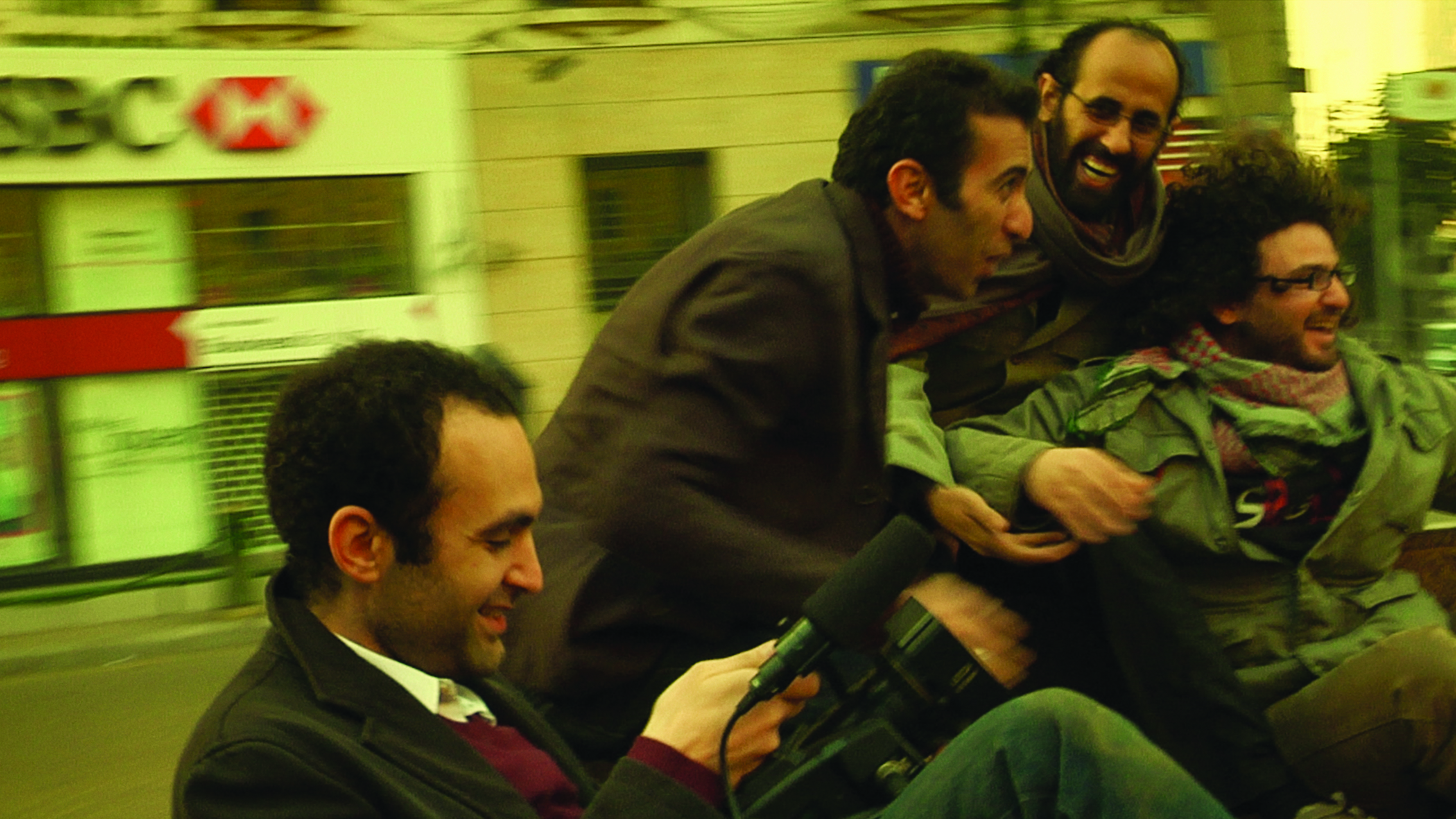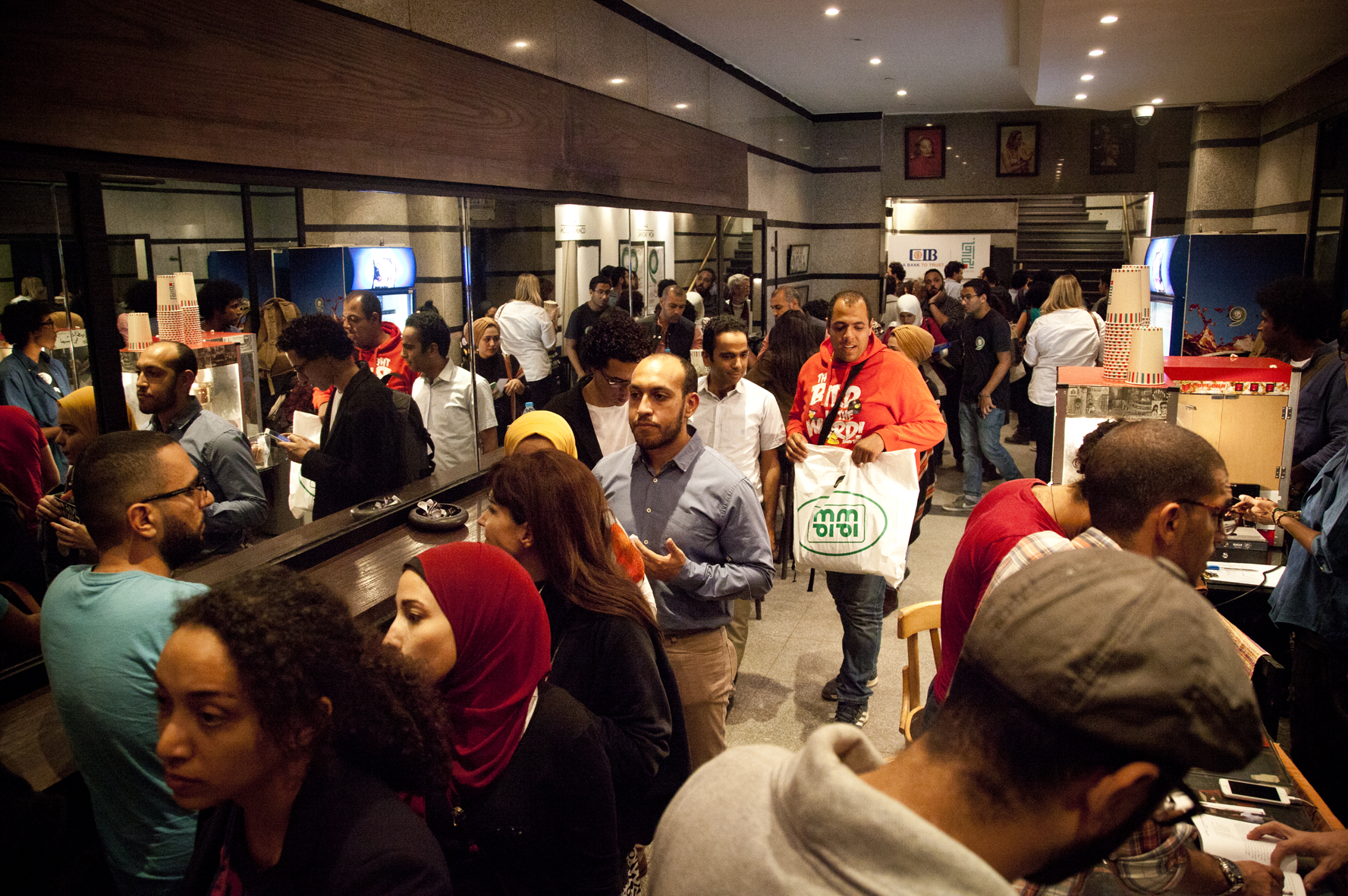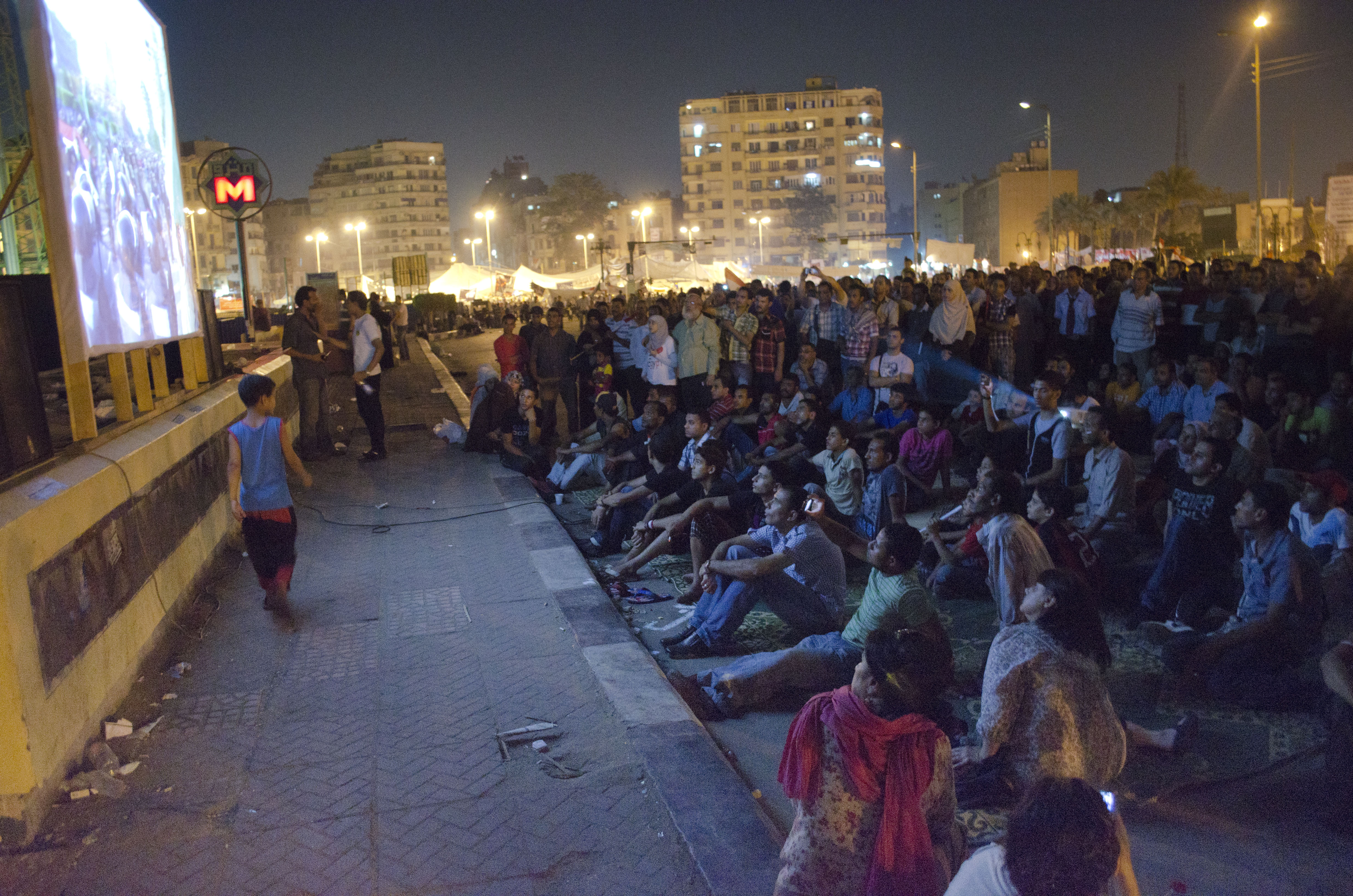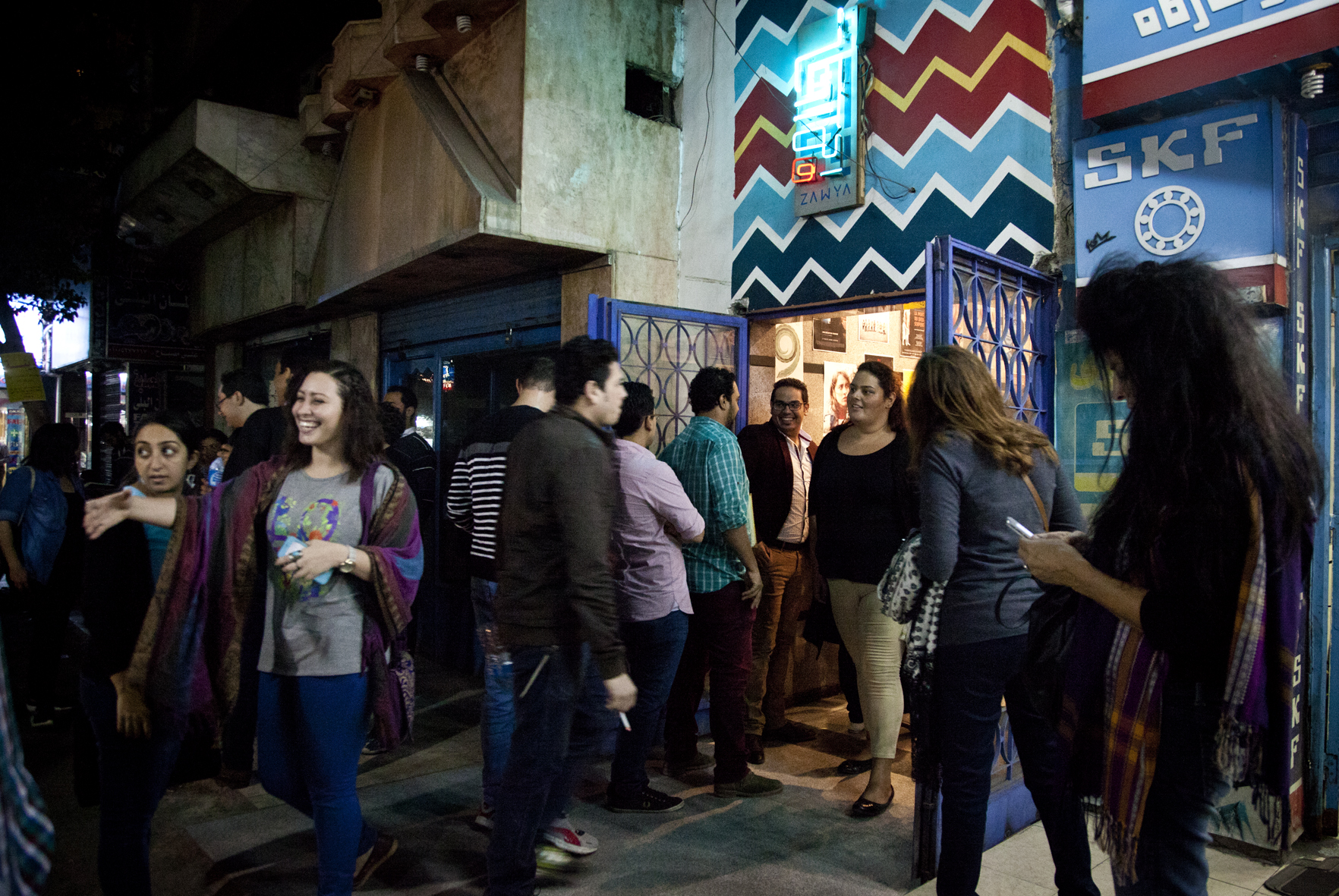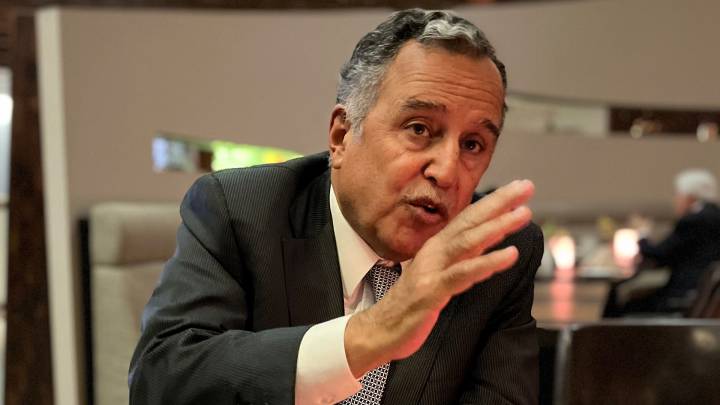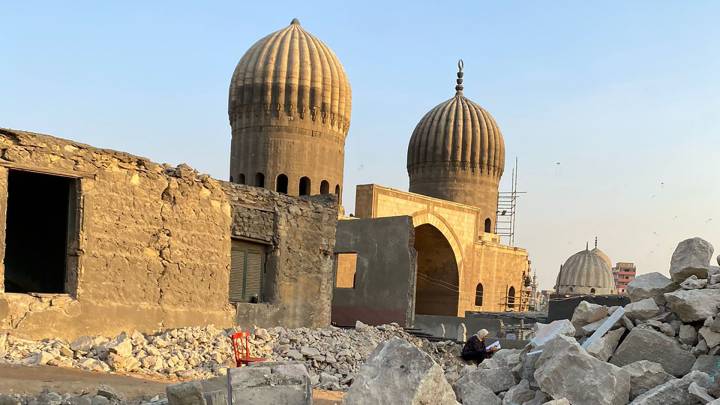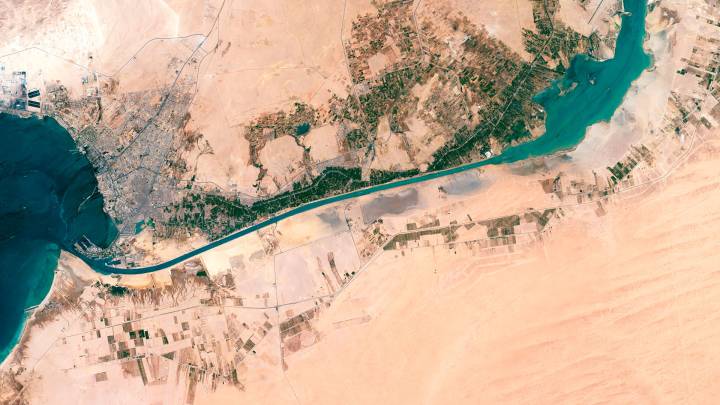Egypt: A small arthouse cinema scene and a growing number of cinephiles are challenging film distribution monopolies and creating spaces for independent film.
If you’re looking for a quiet, contemplative film experience, you’re unlikely to find it at Egypt’s cinemas. Producing more than 30 feature films in 2016, the Egyptian cinema industry is the largest in the Arab world, a loud behemoth yelling at the top of its lungs. Commercial theatres are mostly controlled by a handful of film distributors, their screens increasingly dominated by melodramatic tales of unrequited love and crime rings, or slapstick comedies with multiple musical interludes. But a small independent theatre tucked away in a downtown Cairo back alley is quietly working to upset the cinematic status quo, one independent film at a time.
Founded in 2014, Zawya is Egypt’s first arthouse cinema, a single screen at the back of the once grand Odeon Cinema Downtown. With a weekly programme of local, regional and non-commercial foreign films, as well as the occcasional Hollywood blockbuster, Zawya has amassed a small but loyal following of cinephiles and has recently expanded its reach with the launch of a distribution arm focused on local independent features.
“There was a real need for it,” says Youssef Shazli, the cinema house’s co-founder. “There aren’t any distributors working on these kinds of films locally. It’s a market that’s still totally open.”
Egypt’s prominent film distributors include Al Massa Art Production, Dollar Film and Al Arabiya for Film Distribution. These distributors work mainly with big production companies on films with star-studded casts and mass appeal, very different from the personal, character-driven works Zawya represents.
Independent filmmakers face colossal challenges
Assuming independent filmmakers make it past the myriad pre-production problems they face in Egypt – securing funding, wading through red tape to acquire elusive filming permits, and working around regressive censorship mechanisms – once a film is completed, they must fight yet another battle to get it seen by the public.
Once a film is completed, filmmakers must fight yet another battle to get it seen by the public.“Over many years, the state has created a monopoly where the producer, the distributor and cinema owner are the same person,” explains Egyptian director Tamer El Said, whose first feature film, In The Last Days of the City (2016), has garnered multiple awards worldwide since premiering at the Berlin International Film Festival in February, where it was nominated for best feature and won the Caligari Film Prize. However, it has yet to be released in Egypt. Filmmakers from outside this patronage network find it difficult to secure screening slots, with the producer/distributor/cinema owner having little incentive to split profits with someone from outside the establishment.
The laws are on the side of big capital, says El Said, explaining that smaller independent producers were pushed out of the market in the 1990s, unable to compete with bigger companies that enjoy tax cuts and other advantages. Laws also privilege members of the official syndicate of cinematic arts, with law 35 of 1978 banning non-members from making films. In turn, membership in the syndicate is restricted to graduates of one of Egypt’s national arts institutes, another filter for aspiring filmmakers.
An elegy to Cairo in all of its dust and decay, In the Last Days of the City tells the story of a young filmmaker trying to negotiate his relationship with, and struggling to complete a film about, his hometown in the few years prior to the 2011 uprising. With segments shot in Beirut, Baghdad and Berlin, the film took nearly ten years to complete, says El Said, because he had to produce it himself. In the resulting melancholic portrait of a city and a young man, not much happens, little is resolved and meditating on futility seems like a national pastime.
The film was set for its first local screening at the Cairo International Film Festival in November, but was pulled from the programme at the last minute under the pretence that it had been over-exposed, according to a statement by festival management, who said the director did not honour their agreement to limit the number of screenings preceding the festival. In a public statement, the film’s crew denied any such agreement had been formally made.
It’s harder because we work on films that are very personal, that are not very accessible to a wide audience. The film is now set for an imminent cinematic release through Zawya Distributions, which aims to show the film at eight to ten cinemas including their own, according to Shazli. Zawya Distributions is limiting itself to distributing five films per year in order to cater its promotion strategy to each individual film. Beyond a cinematic release, it works to get its films on television channels, video-on-demand platforms and airline in-flight entertainment systems.
“For our films there is definitely an interest, but it’s very targeted. It’s harder because we work on films that are very personal, that are not very accessible to a wide audience,” says El Shazli.
The Egyptian films that make it to the European festival circuit are often the ones that do not get a run at local theatres, with Egyptian cinemagoers missing out on the chance to see the cinematic portrayals of their locality that a foreign audience can.
“When people go to the cinema, they are not aware of the fact that they’re not actually freely choosing what to see, but that there are a group of people who are filtering what is available and presenting 10 per cent of the output at best,” says El Said.
One country, two cinematic perspectives
There are two parallel versions of contemporary Egypt in film today: Egypt for the eyes of the outsider (sombre, layered, conflicted), and Egypt for the hedonism of the local (fast, raucous, entertaining). The former version often appears in independent films that are quieter, less flashy, and lack the big star appeal of their commercial counterparts, and, despite successes abroad, local distributors still perceive them as risky ventures. But that’s not necessarily true.
Director Ahmad Abdalla’s Rags and Tatters (2013, distributed by MAD Solutions), which screened at the Toronto International Film Festival and the London Film Festival and won the Golden Antigone at the Montpellier Film Festival, was expected to be a box-office flop. Distributed locally by MAD solutions, the film was set for a one-week release at limited cinemas but was extended for a second week, eventually grossing $30,000 at local box offices, an unexpectedly high amount for a near-silent docudrama following an escaped prisoner trying to make sense of Egypt’s 2011 uprising.
Similarly, Mohammed Diab’s Clash (2016, distributed by Al Massa Art Production), which premiered as part of the Cannes Film Festival’s Un Certain Regard section, was warmly received at home, showing at more than 35 theatres across the country. Since Egypt has less than 250 cinemas nationwide, this is a relatively wide release for a one-location drama shot entirely in the back of a police van.
Public taste is expanding beyond what conventional commercial cinema has to offer.While both these films are on the margins of the mainstream film establishment, their casts include well-known names, which might explain their unexpected popularity. But what their relative success indicates is that, slowly but surely, public taste is expanding beyond what conventional commercial cinema has to offer.
“The big challenge is how to create a model that will allow people to see a different kind of cinema, so that over time this demand can be created. The films will create their own audiences,” says El Said, adding that even cinemas in Zawya’s personal network were reluctant to screen In the Last Days of the City, fearing it lacked commercial appeal. “I don’t think that’s the case. I just think it doesn’t have the commercial appeal they expect.”
Who controls which narratives can be told?
For El Said, which films screen where is not just a matter of the success or failure of the filmmaker, nor is it just about creating a sorely absent infrastructure to enable independent filmmakers to profit from their work. It affects something much bigger: who controls which narratives can be told. “Cinema is an art continually caught in the push and shove of the battle over narratives.”
Zawya has partnered with initiatives outside the capital, in cities like Alexandria, Port Said and Ismailia which now run weekly screening programmes under the Zawya brand. This feeds into their distribution platform, guaranteeing at least one screening of these independent films outside the capital.
But in order to make even a small dent in the industry, much still needs to be done. Zawya is still technically the only arthouse cinema in Egypt, and the growing number of locally produced independent films all have to fight for a spot on its single screen.
While the cinema and distribution company has held workshops to disseminate its alternative screening and distribution model, both Shazli and El Said say how In the Last Days of the City fares locally will be the litmus test of whether this alternative model can succeed.
“We're not dismissing the big distributors, they will continue to exist,” says Shazli. “For us it’s about creating a parallel market, one where different narratives can have a life.”
Lara El Gibaly is a Cairo-based writer and journalist reporting on politics, society and contemporary culture. Her writing on the arts has been featured on independent web platform Mada Masr, and she has contributed reporting to publications such as the New York Times, the Washington Post and the Wall Street Journal.
